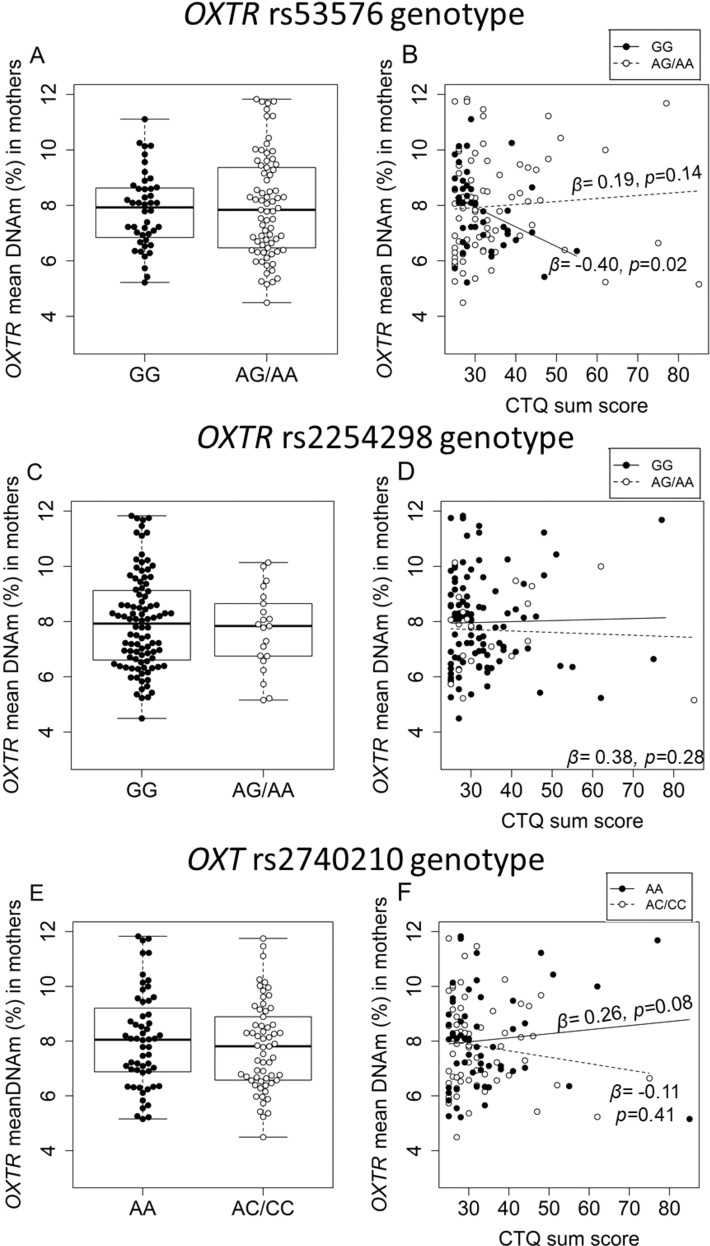Fig. 3. Interaction of rs53576, rs2254298, and rs2740210 with childhood maltreatment (CM) load on maternal OXTR DNAm among mothers.
A OXTR mean DNAm did not differ significantly between mothers with the GG genotype for the OXTR rs53576 (n = 41) and A-allele carrier mothers (n = 66) (β = 0.03, p = 0.78). B The OXTR rs53576 genotype modulated OXTR-methylation levels in interaction with the severity of CM experiences (N = 107, β = 1.24, p = 0.01). Further analyses revealed that only mothers with the GG genotype of the rs53576 showed a negative association between the CTQ sum score and OXTR methylation (n = 41, β = −0.40, p = 0.02), while A-allele carriers did not (n = 66, β = 0.19, p = 0.14). C The OXTR DNAm did not differ between mothers carrying at least one A allele of the OXTR rs2254298 polymorphism (n = 18) and GG-homozygous mothers (n = 89, β = −0.04, p = 0.70). D The rs2254298 genotype did not interact with the severity of CM experiences in predicting maternal OXTR DNAm (N = 107, β = 0.38, p = 0.28). E Mothers carrying a C-allele of the OXT-rs2740210 SNP (N = 56) did not differ from AA-homozygous mothers (n = 51, β = −0.05; p = 0.59) with regard to OXTR methylation. F However, the rs2740210 modulated DNAm levels in interaction with CM severity (measured as the CTQ sum score) (N = 107, β = −0.84, p = 0.02). While AA-homozygous women exhibited a trend of higher OXTR DNAm with higher CM severity (n = 51; β = 0.26, p = 0.08), no such association was observed among women carrying a C allele (n = 56; β = −0.11, p = 0.41).

